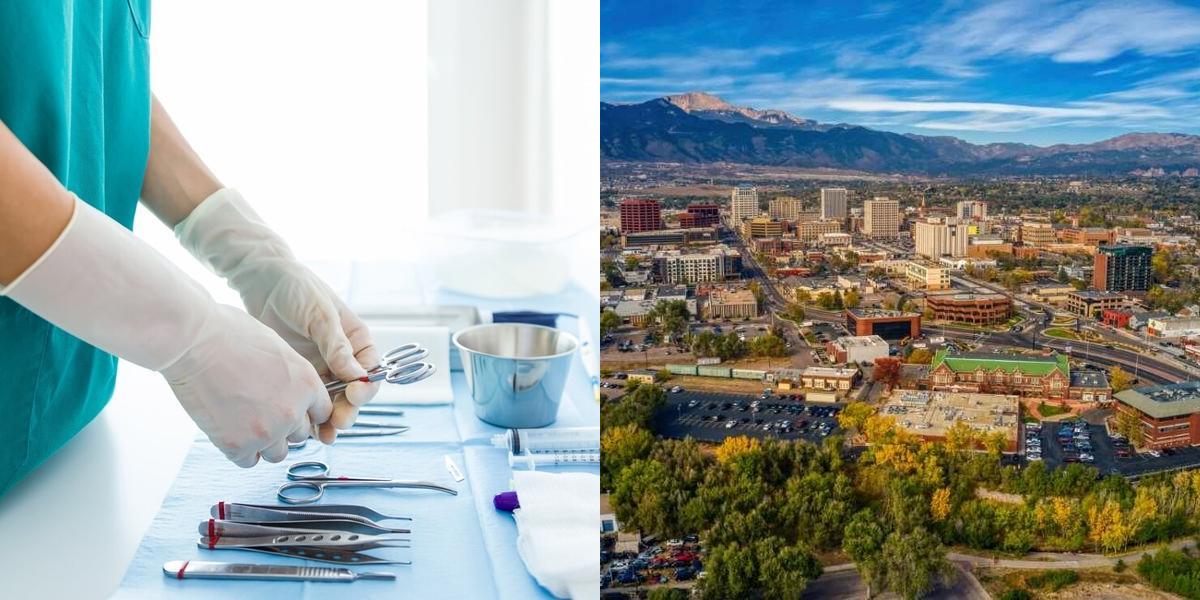Steps to become a Sterile Processing Technician in Colorado
1. Find a sterile processing technician class
Looking for a class to become a sterile processing technician? Check out Dreambound! Through their easy to use platform, you can discover schools that offer online and in-person training in Colorado. Plus, you can filter their list of accredited programs by distance, duration, payment methods, and more. Start your journey with Dreambound today!
2. Pass the class requirements for the Sterile Processing Technician class
To enroll in a sterile processing technician class, there's a few things you'll need to have prepared:
- Your immunization or medical records
- A proof of age or ID that shows your date of birth
- Any related education certificates or educational background you've earned.
- A student information form filled with necessary details
- A background check and drug screen may also be required
Remember, these are just the usual requirements. It's always a good idea to have a chat with your chosen institution to make sure you've got everything covered.
3. Finish your class!
A sterile processing technician class is usually offered by community colleges, vocational schools, and technical institutes. These programs are tailored to equip you with all the essential skills and knowledge you need. You'll learn about critical topics like infection control and sterilization techniques while also getting a firm grasp of medical terminology and anatomy. It's more than just a course - it's your gateway to making a real difference in the healthcare field.
4. Obtain your Sterile Processing Technician certification
To become a Sterile Processing Technician (SPT), you must first understand the certification requirements, which can vary by state. For instance, in Colorado, the certification is administered by the Certifying Board for Sterile Processing and Distribution (CBSPD).
According to the offiical website of CBSPD, the examination fee is $128. The total question is up to 150 and each students will be given 3 hours to finish the exam. The length of certification that this exam can grant is up to 5 years.
In order to register for this exam, kindly visit the official CBSPD website and you may also find the candidate bulletin for more information.
You should also gain some practical experience, often through internships or job training. Then, it's time to ace the certification exam, which covers topics like sterilization methods, infection prevention, and medical jargon. There's plenty of study aids available, from guidebooks to online courses, to help you prepare. Once certified, remember to keep your status current by meeting the board's ongoing education demands, which might include earning a set number of continuing education credits or participating in regular training and professional growth opportunities.
5. Get employed as a Sterile Processing Technician!
Congratulations on earning your Sterile Processing Technician certification! Now it's time to flaunt your new credentials. Begin by giving your resume a fresh update, highlighting your new certification along with any relevant skills and experiences. Networking is your secret weapon here; tap into your contacts in the healthcare industry and make your presence felt at industry gatherings.
Next, dive into the job market. Apply to hospitals, surgical centers, clinics, and more! Online job portals and healthcare staffing agencies are also offering a lot of opportunities. If you score well in an interview, arm yourself with knowledge about common interview questions and practice your answers. Dress to impress, and carry copies of your resume.
To stand out from the crowd, consider adding more certifications in areas like infection control or surgical technology. This not only boosts your job prospects but also showcases your dedication to continuous learning and growth in your field.
Frequently Asked Questions
Where can I find Sterile Processing Technician classes in Colorado?
Dreambound makes it easier than ever to pursue your dreams regardless of your location by simplifying the process of finding and comparing Sterile Processing Technician classes through a convenient search by zip code. With determination and access to the right resources, you can confidently pursue a successful career in healthcare, no matter where you live.
How much does a Sterile Processing Technician make?
Ever wondered what a Sterile Processing Technician earns? Well, their income can vary considerably depending on various elements like their location, experience, and qualifications. To give you an idea, the Bureau of Labor Statistics revealed that the average annual salary for this role was a respectable $45,280 as of May 2023. But it's not all the same - those in the bottom 10% bracket earned less than $34,020, while the ones in the top 10% pulled in over $63,980.
Keep in mind, these figures represent the average earnings across the US. Your actual paycheck could be more or less, depending on your unique circumstances. It's an exciting field with a wide income range, making it an intriguing career option for many.





